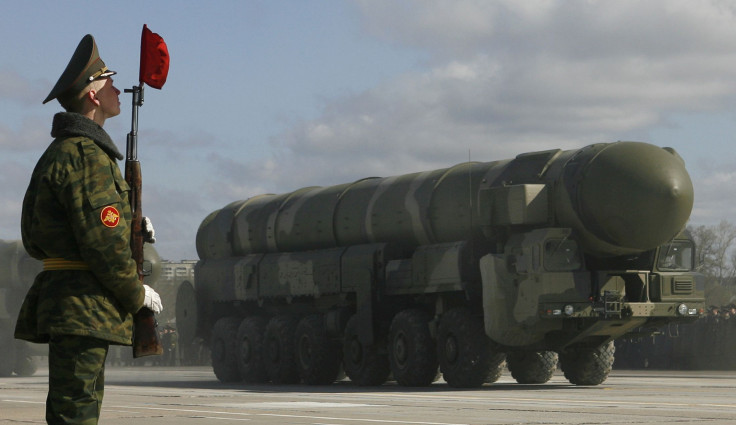Russia Voices Concerns Over U.S.-Led NATO Ballistic Missile Interception Drills In Atlantic

The Russian Defense Ministry has expressed concerns over a planned U.S.-led NATO sea exercise in the Atlantic that it says will simulate the interception of Russian ballistic missiles. Known as the At Sea Demonstration-2015, the exercise planned for this fall will involve Norway, the U.K., Italy, Canada, the Netherlands and France.
"The drills will be conducted in the northeastern part of the Atlantic, and this can signal only that there are plans to practice intercepting Russian ballistic missiles. Such drills cannot but concern us," Russian Deputy Defense Minister Anatoly Antonov told reporters on Thursday.
Russia's annexation of Crimea in March 2014 and its involvement, Western nations allege, in the eastern Ukraine war that began in April 2014 have strained diplomatic ties between Russia and Europe. The U.S. and EU have placed tough economic sanctions on Russia, and in the past year European countries, mostly NATO members, have conducted military exercises in the Baltics and Eastern Europe in response to what European leaders have called Russian hostility. Russian jets and ships have repeatedly been spotted in international airspace and waters close to NATO and neutral nations, with Russia applying tactics reminiscent of the Cold War, especially around the former Soviet countries on the Baltic Sea.
The exercise will allow NATO forces to practice joint air defense drills and test antiballistic missile defenses, using the U.S.-built Raytheon SM-3 missile interceptor, a missile designed to hit ballistic missiles and destroy them while they are still in space.
Russia’s concerns about the maritime exercise, said Antonov, come at the same time as the establishment of stationary missile defense systems across Europe. Last month, Poland chose the U.S.-made Patriot missile defense system. Russia has long described the placement of missile defenses in Europe as an antagonistic move by the West.
"Statements of politicians and military chiefs of NATO countries on the adaptability of this project have been forgotten, and the Russian concerns continue being ignored," said Antonov. "Upon the alliance’s initiative, the dialogue on the military and political issues, including the missile shield, has been scrapped."
© Copyright IBTimes 2024. All rights reserved.






















